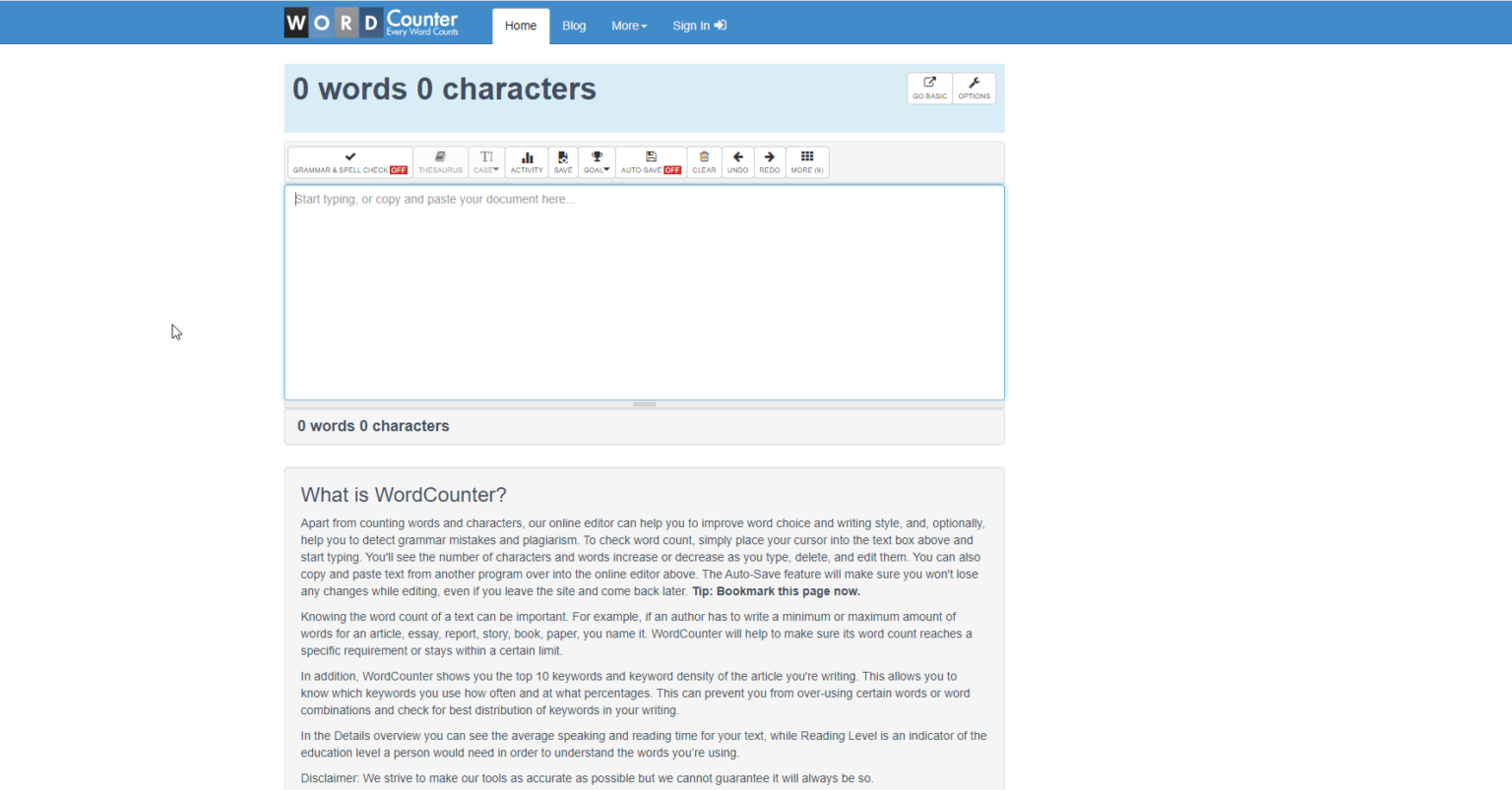Word Counter: A Comprehensive Guide
Where content creation is at its peak, word count plays a crucial role in various aspects of writing.
Whether you are a student working on an essay, a professional drafting a report, or a content creator optimizing for SEO, knowing the number of words in your text is essential.
This is where a word counter tool comes into play, offering a simple yet powerful solution to accurately determine word count.
In this comprehensive guide, we will delve into the concept of word counter, its significance, different types, and the benefits it brings to writers across various fields.
Understanding Word Counter
A word counter is a tool that calculates the number of words, characters, sentences, and paragraphs in a given text.
It provides writers with a quick and accurate way to measure the length of their content. Word counters are commonly used in word processing software, online platforms, and writing applications to help users stay within specified word limits or track their progress during writing.
Significance of Word Count
Word count is a fundamental metric in writing for several reasons:
1. Academic Writing:
In academic settings, word count requirements are often specified for essays, research papers, and other assignments. Adhering to the prescribed word limit is crucial for meeting academic standards and conveying information effectively.
2. SEO Optimization:
For content creators and digital marketers, word count plays a significant role in search engine optimization (SEO). Search engines tend to favor longer, informative content, making word count an essential aspect of content strategy.
3. Writing Efficiency:
Monitoring word count helps writers maintain a consistent pace and structure in their writing. It enables them to break down their content into manageable sections and ensure that they convey their message concisely.
Types of Word Counters
Word counters come in various forms, each tailored to different user needs and preferences. Here are some common types of word counters:
1. Built-in Word Count Tools:
Many word processing software, such as Microsoft Word, Google Docs, and Pages, come equipped with built-in word count features.
These tools provide basic word count metrics and are convenient for users who primarily work within these platforms.
2. Online Word Counters:
Online word counters are web-based tools that allow users to paste or type their text into a designated area to obtain word count statistics.
These tools are accessible from any device with an internet connection and are often free to use.
3. Plugin Word Counters:
Some writing applications and browser extensions offer word count functionality as part of their features.
These plugins seamlessly integrate word counting capabilities into the writing environment, enhancing user experience and efficiency.
4. Advanced Word Counting Software:
Advanced word counting software provides in-depth analytics beyond basic word count metrics.
These tools may offer insights into readability, keyword density, and other linguistic aspects to help users optimize their content for specific purposes.
Benefits of Using a Word Counter
Using a word counter tool offers several benefits to writers of all levels:
1. Accuracy and Efficiency:
Word counters provide precise word count measurements, eliminating the need for manual counting. This saves time and ensures accuracy in meeting word limit requirements.
2. Goal Setting and Tracking:
By knowing the word count of their content, writers can set goals and track their progress as they write. This motivates them to stay focused and maintain a consistent writing pace.
3. Content Optimization:
For content creators and marketers, word count tools help optimize content for SEO by ensuring that the text meets the desired word length for search engine ranking purposes.
4. Editing and Proofreading:
Word counters assist in editing and proofreading processes by giving writers a clear understanding of the content’s length and structure. This aids in identifying areas for improvement and enhancing overall readability.
Conclusion
In conclusion, a word counter is a valuable tool for writers looking to streamline their writing process, meet word count requirements, and optimize their content effectively.
Whether you are a student, professional, or content creator, incorporating a word counter into your writing routine can significantly enhance your productivity and output quality.
By understanding the significance of word count, exploring different types of word counters, and leveraging the benefits they offer, writers can elevate their writing experience and achieve desired outcomes with ease.














